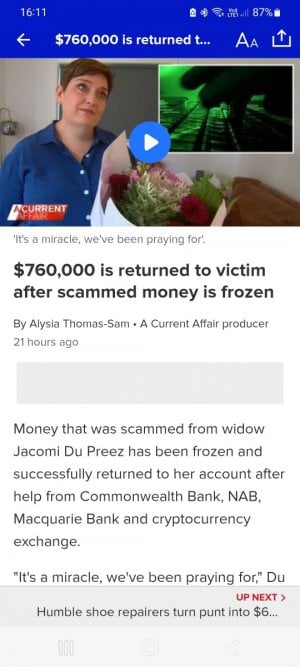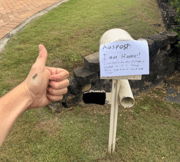S
Sean Camara
Guest
Would-be homeowner loses more than $700,000 in a single click after falling victim to a new lucrative scam
A new lucrative scam has caused a would-be homeowner to lose more than $700,000 in a single click.
It was said that a West Australian woman, who was in the process of purchasing a property in Beaconsfield, received an email from someone impersonating her settlement agent in April.
The unsuspecting client said that the sender — who used a generic Hotmail email address bearing the agency's name — had sent her "authentic-looking documents", prompting her to believe that the email was legitimate.
She also disclosed that the sender asked her to deposit funds into a bank account prior to settlement.
The woman had already transferred $732,000 to the bank account when the real settlement agent reminded the clients about making the payment prior to carrying out the final property inspection, uncovering the scam that the would-be homeowner had fallen victim to.
A Western Australian woman lost $732,000 after scammers impersonated her settlement agency. Credit: Getty Images.
Payment-redirection scams are on the rise in Australia, with victims losing tens of thousands of dollars in property transactions.
These scams usually involve high-value financial transactions, such as real estate purchases or business contracts. The scammers work by intercepting communications between the buyer and seller and substituting their own bank account details for the real ones. The buyer then transfers the money into the scammer’s account, thinking they are paying the seller.
As a result, the woman is one of nine victims in Western Australia alone who have reported losing a total of $1,015,129 to payment-redirection scams this year, three of which were involved in property transactions.
In 2021, 37 victims lost a total of $1,013,278, with only two victims recovering $287,407 of their losses.
In light of the recent spate of email scams targeting Australians, the WA Consumer Protection Executive Director Trish Blake has urged everyone to be more vigilant when it comes to their online communications.
Blake warned that these scams usually involve hackers gaining access to someone's email account or computer system, and then using that information to either request payments or change the bank account details associated with a particular payment.
She explained: “The hackers may have successfully guessed the password or installed spyware or malware on computers or laptops after recipients open attachments or click on links in scam emails."
“The losses from these scams can be extremely devastating to the victims who may have lost their home deposit that they have been saving for many years and may not be able to buy the home of their dreams. Or it may be a business doing it tough that can least afford to lose such a large amount of money.”
It is advised to call the purported sender of the email using the contact information from its official website to verify the authenticity of a request. Credit: Getty Images.
So, how can you protect yourself from becoming a victim of these scams?
Firstly, always verify the sender of any email you receive, even if it appears to be from a trusted source. If the message comes via a generic email service provider such as Gmail or Hotmail, be particularly suspicious.
Secondly, if you're unsure about the authenticity of a request, call the sender to confirm it using contact information from an official website.
Finally, consider setting up multi-factor authentication on all of your online accounts. This adds an extra layer of security by requiring you to enter a code from your mobile phone when logging in, in addition to your username and password.
Here’s a video tutorial on to turn on two-factor authentication in your Gmail account (or may visit the hyperlink we shared above for detailed written instruction):
Credit: YouTube/Gmail Help Support
Stay safe out there, folks!






